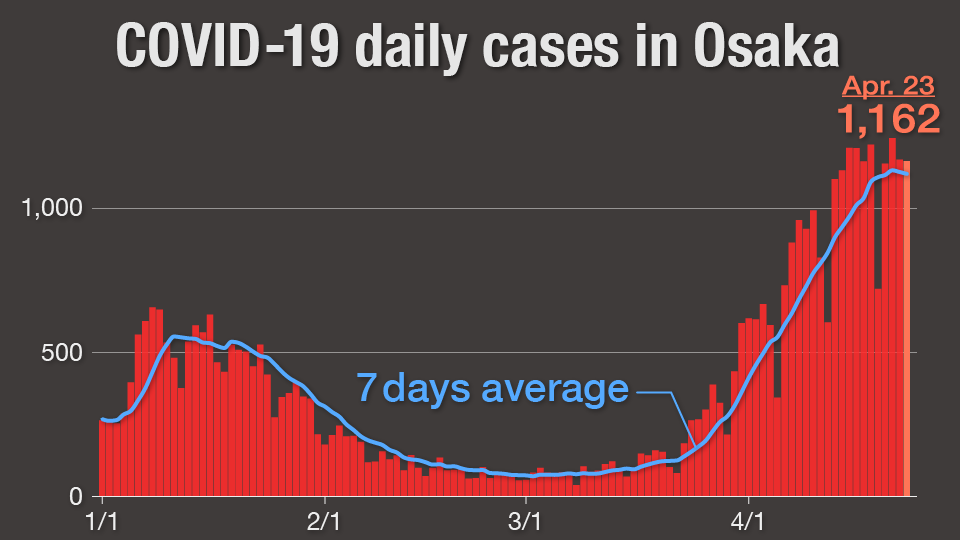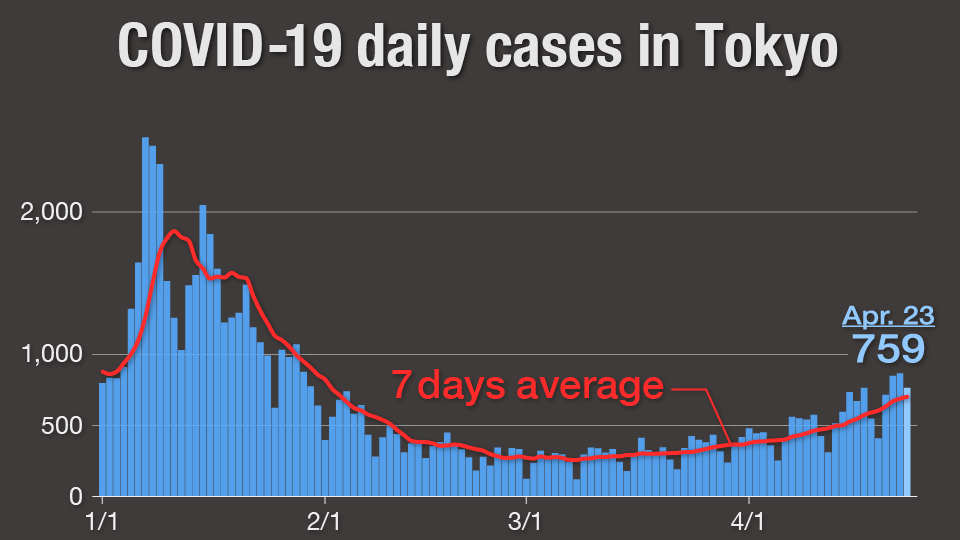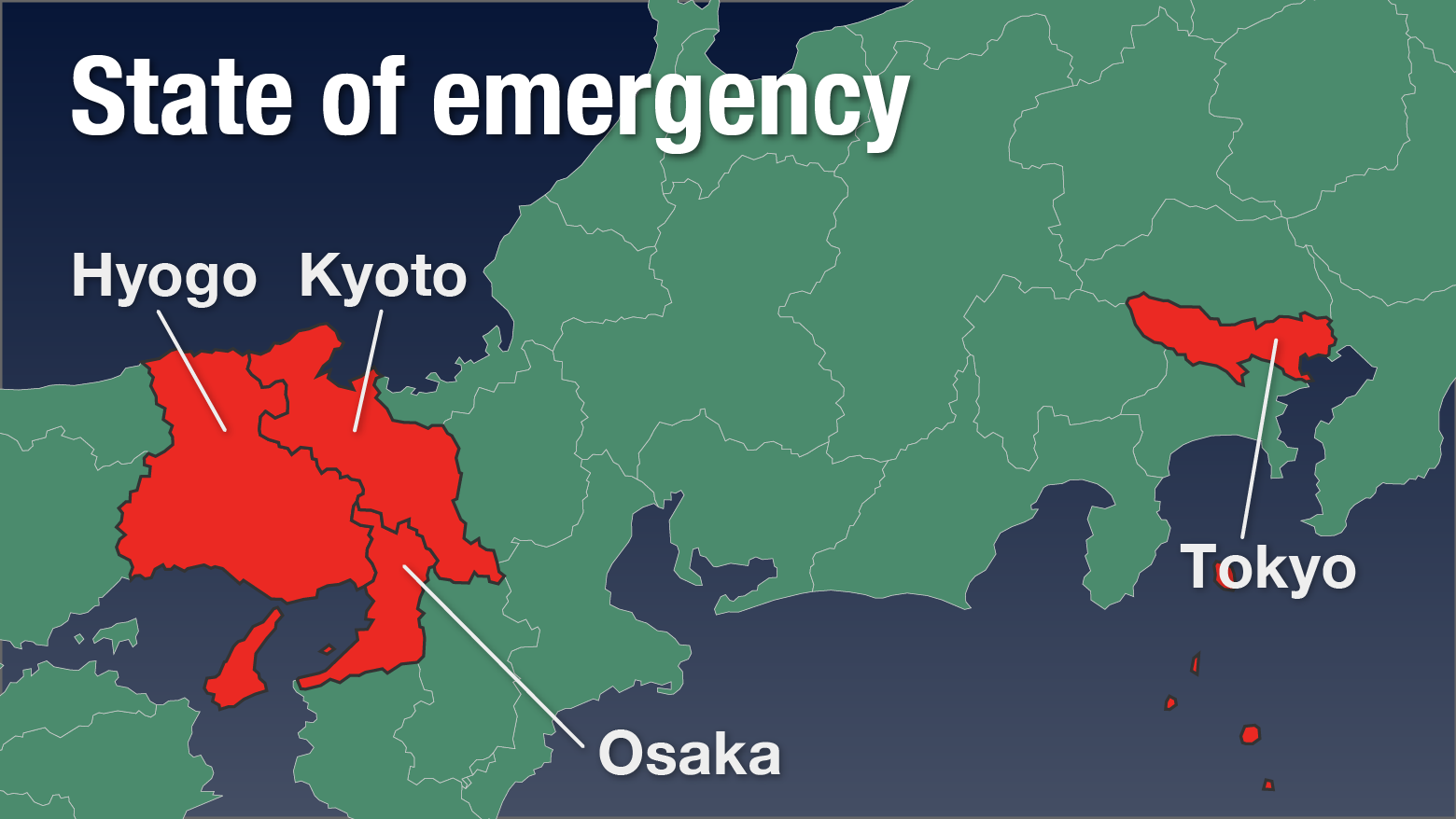"We want people to stay at home as they did in the spring of last year in order to seize the opportunity of the long holiday and contain the spread of infection," said Economic Revitalization Minister Nishimura Yasutoshi at a meeting of the government's panel of experts on Friday. "We want to contain the spread of the disease at any cost through short-term intensive efforts."
Infection numbers are increasing in two of Japan's major urban centers, driven by the spread of more contagious variants. In Osaka Prefecture, the daily tally of confirmed coronavirus cases has exceeded 1,000 for four days in a row.
The prefecture is suffering from a shortage of beds for seriously ill patients. As of Thursday, there were 328 people in serious condition, but only 272 beds for such cases.
Osaka Prefectural Nakakawachi Emergency and Critical Care Center treats severe COVID-19 cases and has been at capacity most days since the beginning of the month.
"Some coronavirus patients with severe symptoms are not being hospitalized when they should be," says the center's director, Yamamura Hitoshi. "It will not be possible to stop it unless we stop the movement of people."

In Tokyo, the infection rate is rising and the daily case count has exceeded 750 for three consecutive days.
Experts monitoring the situation are increasingly worried about a particular variant becoming the dominant strain in the area.
They say if the more transmissible "N501Y" mutation does become dominant, the daily count of new cases will exceed 2,000 in two weeks. They also estimate the number of hospital inpatients would exceed 6,000. That's far higher than Tokyo's record of 3,427 set on January 12.

New measures to control infections
The government will ask bars and restaurants that serve alcohol or offer karaoke to close. People will be warned about drinking in groups on the street and in parks.
Event organizers will be asked to stage the events, in principle, without spectators. Commercial facilities with floor space of more than 1,000 square meters, such as department stores, shopping centers and movie theaters, will be asked to close, with the exception of areas that offer daily necessities.
Subway and bus services will be reduced, and people are urged to refrain from nonessential outings or traveling between prefectures.
Business leaders are calling for financial support for sectors that will be hit hard by the closure requests.
"The upcoming state of emergency is likely to have an enormous impact on the economy, especially for smaller firms that have been barely hanging on," says Mimura Akio, chairman of the Japan Chamber of Commerce and Industry. "I want the government to properly compensate all those who will be affected."

